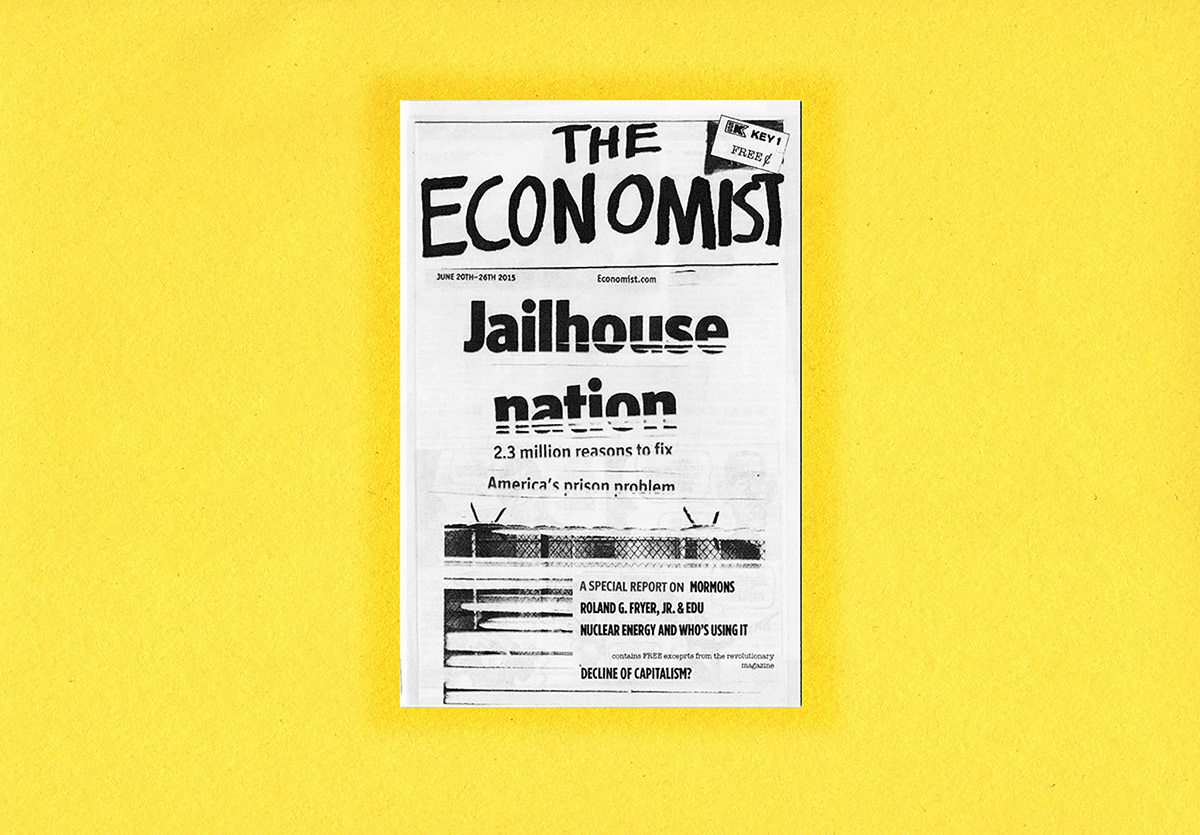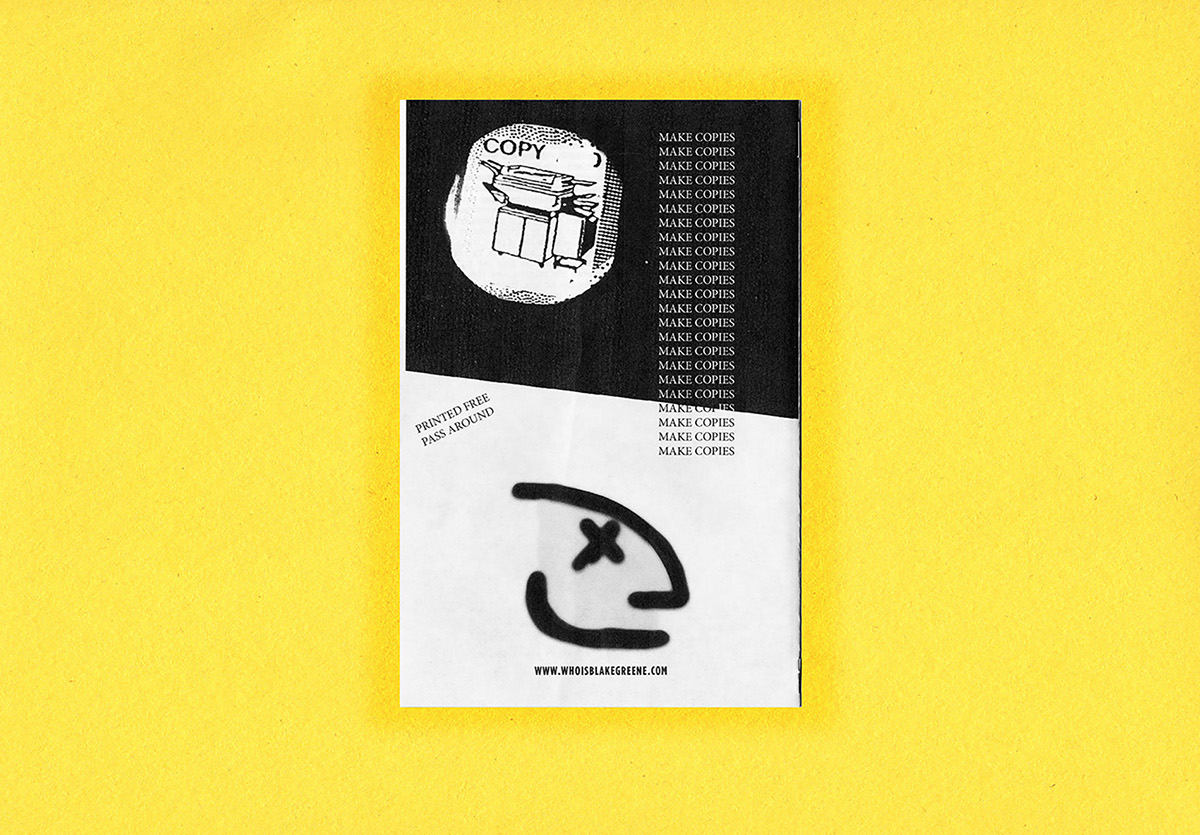
At the Rhode Island School of Design, I noticed that the student body had few meaningful windows into understanding the role that we as artists and designers play in understanding and shaping the economy. Young artists often attempt to make work that addresses the topic of economics, but many fall victim to basing their work off of biased sources that ignore fact and promote fiction. However, getting students at RISD to study middle-of-the-road, somewhat dry accounts of economic activity isn't easy because it isn't sensational, sexy, or particularly fun to read. My answer to this problem is a copy of The Economist with handpicked articles typeset to look like an anarchist zine, complete with patchwork spreads, inconsistent type, and photocopied images.


Why make it look like an anarchist zine? At RISD, students are looking for something that goes against the grain, they aren't looking for a copy of the Financial Times. The student body needed a fast, easily digested news source that spoke to anti-establishment principles. On an art school campus, zines stand out because they represent the voice and artistic zeal of the people, not the establishment.

Which articles to include? A young art student doesn't want a dissertation on prison reform or a long winded defense of capitalism, they can find that anywhere and they won't read it. Instead, they want stories; stories that are easy to access. The articles I've included tell personal stories that relate to economic issues. Stories include Roland Fryer's uplifting career trajectory as Harvard's youngest African-American professor to win tenure, open-mindedness and religion in Utah, stories about how America's prisons can be reformed through economic and social change, and forecasts for the end of capitalism. Millennials are used to ingesting short, bite-sized stories that provoke Facebook flame wars; my hope is that this sampling of medium length articles in a print format will create meaningful, face to face debate rather than digital flame wars.


And what of implied bias? Using The Economist as my source material does not negate the presence of bias but it does mitigate its impact. The Economist is a middle of the road though somewhat libertarian publication that reports facts with little spin. Zanny Minton Beddoes' publication certainly believes in largely free trade, which some would view as wildly biased, but considering RISD students will most likely be operating in free market societies their whole lives, and most young artist's work dealing with economics revolves around the impacts of capitalism. To present topics of economics through a lens that looks down on trade or sees it as irrelevant would construct a different kind of conversation, one outside of what I wish to facilitate with this project.
This project was printed and distributed around the Rhode Island School of Design in the Fall of 2015. You can download a copy of the zine here.


